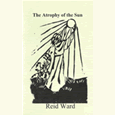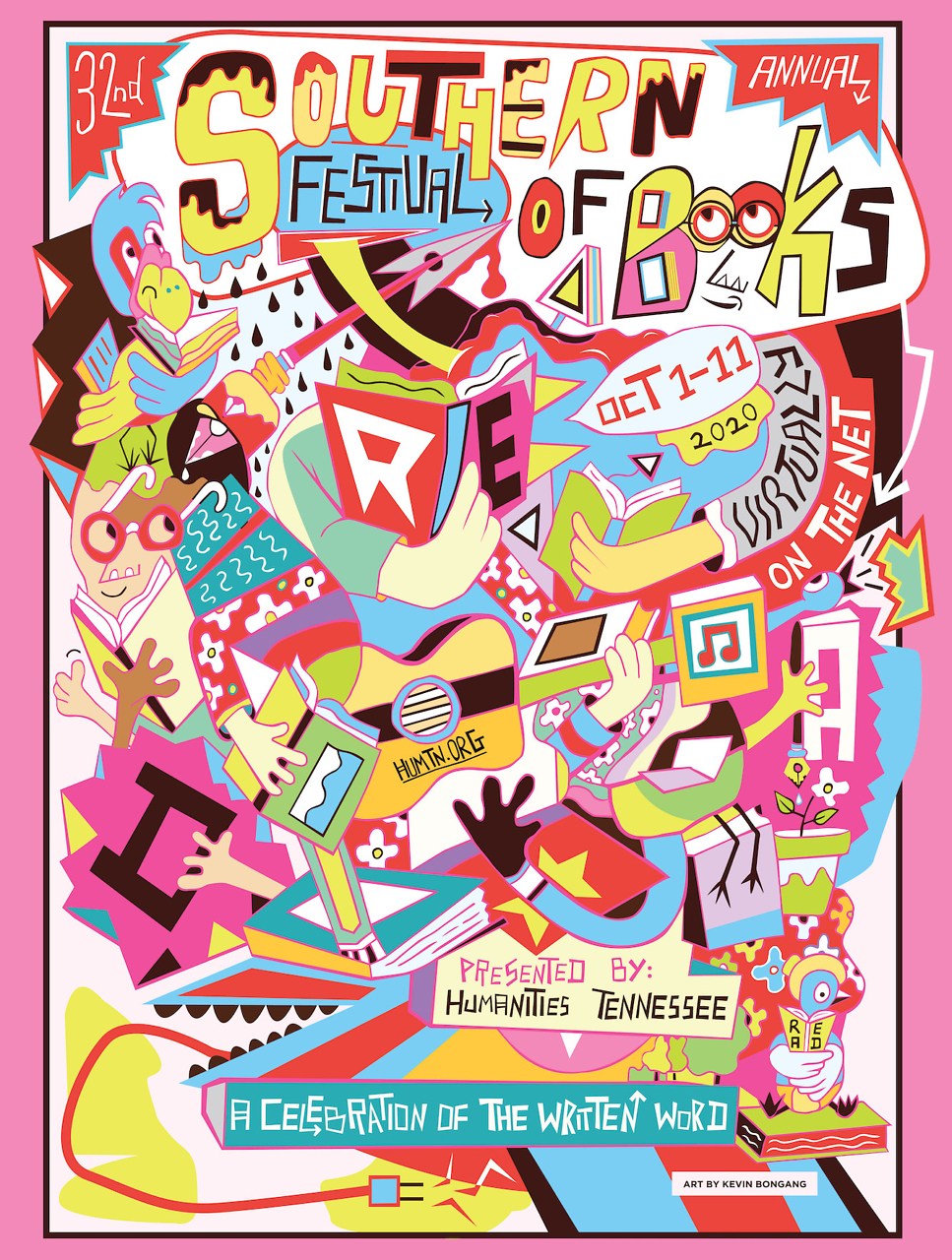Language and Love
As Humanities Tennessee kicks off another Southern Festival of Books, an English professor explains why such celebrations really matter
Words have inherent power, and language is the second-most-valuable tool we have at our disposal. These are notions I try to plant early in the minds of my writing students. True, the look on some of their faces says, “This guy is nuts.” Other students nod, although I never know whether they actually agree or are just being agreeable. But no matter their reaction, I truly believe that we don’t understand our own experience until we hear it or read it—or manage to express it ourselves—in words.
Here’s an example: we mark this year the tenth anniversary of 9/11. We recollect the images of towers collapsing, the falling bodies, the cloud of dust that settled over New York City like a nightmare. We relive the horror, and in doing so, maybe find ourselves still angry, still in a state of disbelief. But those images and emotions—that day and even a decade later—make no sense until we describe them to others, write about the after-effects, express with words what we witnessed and felt. Language is the conduit to humanity.
Sooner or later a student asks, “If language is the second-most-valuable tool, what is the most valuable tool of all?”
Magic happens when people love language.
The answer, of course, is the capacity to love and be loved in return. Love is the only human experience that can be expressed and enjoyed without any words at all. Aren’t there people you love whom you haven’t ever told? Aren’t there people who love you but who have never said so? Aren’t there people you’d like to tell but just haven’t found the right words, if only because the word love seems so final, so committal?
Consider these synonyms: like (a precursor to love); cherish or treasure (too much emphasis on possession and valuation); adore (too precious); relish (too pickle, too fickle); appreciate (really?); fond (don’t you just hear the ominous but that comes next?); devoted (too one-sided, scary). Not one of these words is adequate; not one serves in love’s stead. For love, there is no suitable linguistic substitution.
Now, consider hate and a few of its synonyms: abhor, despise, detest, scorn, execrate, resent, deride, curse, abominate, condemn, denounce, anathematize, loathe. Any one of those synonyms is a more effective choice than hate. Maybe we’ve come up with so many ways to express hatred because we feel compelled to ensure that the object of our derision understands precisely how we feel—because hatred, unlike love, cannot exist in the absence of language.
Beginning today, thousands of us—readers and writers—will be in Nashville for the Southern Festival of Books: a love-fest, an old-fashioned love-in.
Magic happens when people love language. These lovers are, of course, readers. Most of all, they are writers, and when they love words enough and caress them into action, you get Wallace Stevens’s snowman, who alone can behold “the nothing that is not there and the nothing that is.” You get Carolyn Forche’s description of a valley where “mountains hold the breath of the dead between them and lift from each morning a fresh bandage of mist.” You get word of Galway Kinnell’s little intrusive son, Fergus, who walks in on his parents after they’ve made love—“this one whom habit of memory propels to the ground of his making” and is a “sleeper only the mortal sounds can sing awake.”
Every semester I ask my students to read Robert Hayden’s gorgeous poem, “Those Winter Sundays.” Hayden understood that even in a house of “chronic angers,” love finds a way to express itself. At the end of the poem, he chants, “What did I know, what did I know of love’s austere and lonely offices?” Love’s expression needs no words, Hayden confirms—but when we must acknowledge our acceptance of this truth, words are all we have.
Beginning today, thousands of us—readers and writers—will be in Nashville for the Southern Festival of Books: a love-fest, an old-fashioned love-in. We’ll brave whatever weather is thrown at us. We’ll spend money for books because you can never have enough books, and then we’ll lament the lack of shelf space at home. We’ll hustle from session to session because we might miss a word or two if we are late. We’ll collapse when we get home and turn to page one.
Imagine if everyone in line at this year’s Festival said to a writer, “I love the way you string together words.”
We’re coming to the Festival to spend time with people who create for us worlds only they can imagine, or who make us see in a more brilliant light the world we are forced to occupy. We’ll be there because we choose to inhabit their worlds, ethereal worlds that hang somewhere between language and love. We want to see these writers face to face, to learn the color of their eyes, check out their mannerisms and idiosyncrasies, confirm our suspicions, shake their hands, and have them read to us. We want to see if they live up to the other-worldly qualities we have attributed to them.
What will we say?
One spring in Chattanooga, I stood in line for an hour and a half to meet Wendell Berry, to get my first-ever chance to speak to him, have him sign a book, and tell him that he is a personal hero, that I relish his words, and respect his steadfastness, honesty, and grit. When I reached Mr. Berry’s table I could barely utter a word: there he was, flesh and bone, smiling, affable, genuine. I stumbled over “Thank you.” Then I turned and walked away. I should have said, “I love your work”—no matter how trite and overused that expression is.
Imagine if everyone in line at this year’s Festival said to a writer, “I love the way you string together words,” “I love your characters,” “I love your logic,” “I love your book,” “I love your work.” Those authors might just unfurl their wings, or at the very least feel a bit more comfortable under the halos we float over their heads. They might actually feel loved.
Randy Mackin teaches writing and literature at Middle Tennessee State University, where he directs the Tennessee Literary Project. He is the author of George Scarbrough, Appalachian Poet (McFarland 2011) and a member of the Chapter 16 editorial board. The 2011 Southern Festival of Books will be held this weekend, October 14-16, at Legislative Plaza in Nashville.


